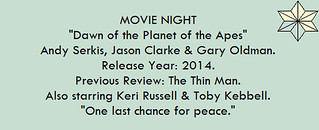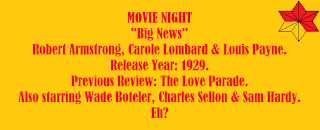Cast:
Kōichi Yamadera (Spike Spiegel), Unshō Ishizuka (Jet Black), Megumi Hayashibara (Faye Valentine), Aoi Tada (Edward Wong), Tsutomu Isobe (Vincent Volaju), Ai Kobayashi (Elektra Ovilo), Mickey Curtis (Rashid), and Yūji Ueda (Lee Sampson) Directed by Shinichirō Watanabe.
Review:
"If you want to create animation, it's important to watch a lot of things that aren't anime. If you don't, it'll all be the same as what became before and originality won't be easy. Originality is very important, and I get a lot of my inspiration from live action movies and music." - Shinichirō Watanabe
Oh hell yes, I was anticipating doing this film. You may or may not recognize Cowboy Bebop within the history of anime, but I will admit that this was my first foray into anime beyond seeing a bunch of anime films (now, the second attempt at watching anime series in Neon Genesis Evangelion and its own feature...that will be for another time). The series was created by the production team at Sunrise: director Shinichirō Watanabe, screenwriter Keiko Nobumoto, character designer Toshihiro Kawamoto, mechanical designer Kimitoshi Yamane, and composer Yoko Kanno. Billed as "a new genre unto itself", Watanabe got his start in the industry in the mid 1980s that went from production staff to director in a number of years, starting with Macross Plus in 1994. With this being his first solo effort, he treated each episode as if it was like a mini-movie, complete with having the ending of the 26-episode series early on; the show actually first started with Bandai offering to sponsor a show as long as it had a spaceship so they could sell it, but their disapproval of early footage led to limbo before Bandai Visual became the new sponsor. The series aired in an irregular way: It first aired on April 3, 1998 but with a first run of only five episodes due to its 6PM timeslot on its network in Japan. Then, on a satellite network, the entire run of 26 episodes (referred as "sessions") ran from October 24 to April 24, 1999 on the satellite network Wowow. Two years later, it aired in the United States on Adult Swim (the late-night block for Cartoon Network started in 2001). In addition to anime, two manga works were released for serialization in Asuka Fantasy DX; Shooting Star ran had a brief run from 1997 to 1998 while the second one ran from 1998 to 2000. Nobumoto, who had served as the writer for numerous episodes of the series (sessions 1, 3, 6, 12, 13, 15, 22, 23, 25, and 26), wrote the film, which was announced in September 1999 that started production in July of 2000. The show did have a clear end point, because Watanabe, convinced it would be a hit, didn't want to it to be something that would possibly tie him to making the show for years and years like Star Trek, but a film was constructed that is set in-between the series that retained the core four voice actors of the series with Yamadera, Ishizuka, Hayashibara, and Tada (I would mention the English dub and the fact that it retained the same four used for the show, but loose purists like me stick with the original actors to begin with, but your milage may vary. There also is a remake that came out years later, but this is no time for fairy tales).
I love the show, let me get that out of the way. The blend of numerous genres such as the Western or pulp fiction made for one of the most fascinating things I have ever seen, one that started and ended with a bang in ways that made it a great decision to see all the way through. Style over substance? Well...duh? The film (referred to with the subtitle "Knockin' on Heaven's Door" in Japan as opposed to just "The Movie") is definitely more rewarding for those who have seen the show than someone going in fresh (one that is quite episodic but worth the ride), but I think it works exactly to what made the show so great in the first place. It is a vibrant movie that cultivates a web of conspiracy into general thrills and warmth that comes from watching these sublime characters and voices come together with nice visuals and a general atmosphere that stands apart from the usual number of animated films. You can see the main four in simple terms in how they proved so endearing: the calm and collected ass-kicker, the jack-of-all-trade father figure, the conniving tease with unpredictability, and the energetic free spirit. The dysfunctional family of bounty hunters is endearing to those who enjoy these folks and the banter they share, regardless of whatever presence lurks (in this case, a villain with some sort of meaning not usually seen in the series).
Consider the opening sequence with Yamadera and Ishizuka being involved in stopping a robbery (bounty job that is four targets rather than three) that lasts just four minutes but tells all you need to know (or already know) about these two characters with the right touch of action and charm. The touches of noir are present here with aesthetic that involves Arabic elements (namely because there's a place in the film seen to help tell certain elements of the story). 115 minutes is a considerable amount to ask, but it does do a careful job in cracking its own story down to the eventual endgame while still having time for engaging character moments that come across here within the question that comes in if one is living in the real world. Isobe may not be the most conniving threat seen in this particular anime lore, but he does resonate well in making a quality match with invoking the futility of trying to run from the fear of death. Kobayashi acts as the diminished mirror of him in terms of humanity (i.e. being a one-time ally for us to watch in the same way you would see from other one-time characters seen in the anime). Yamadera and his self-assured confidence carries the film quite well as a look upon people trying to circle away from their past but never quite escaping it - an antihero if there ever was one, but a quality antihero worth watching. Given that the film splits its time with the characters usually apart, Hayashibara fares pretty well in managing the enigmas present in the character and the plot without being lost in it. It is fairly inevitable where the film will go at some point, but it is the ride that matters most in getting there, and it is a generally involving one that doesn't meander or talk down to its audience, instead letting things breathe before getting back on the trail. As a whole, it proves rewarding for fans of the anime and diverting for newcomers, which is probably the best of both worlds when it comes to its enduring legacy after two decades. Generous or not (because hey, this is my rating system), I thought it was a pretty fun feature and one that should be worth one's time to see.
Overall, I give it 9 out of 10 stars.
This closes out September. Be ready for a whole month of horror movies, as you would expect. There will be a variety of decades covered in horror, but a special twist will start out the month.













